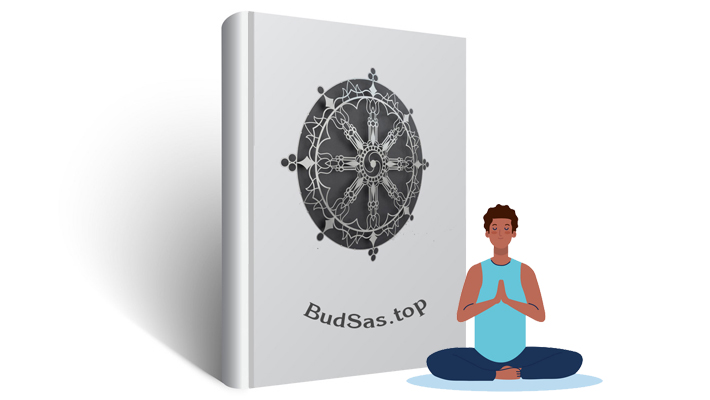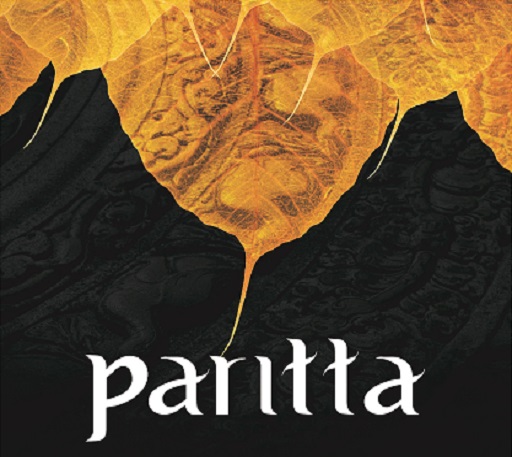No. 130.
KOSIYA-JĀTAKA 1.
[463] “You may ail or eat.”–This story was told by the Master while at Jetavana, about a woman of Sāvatthi. She is said to have been the wicked wife of a good and virtuous brahmin, who was a lay-brother. Her nights she spent in gadding about; whilst by day she did not a stroke of work, but made out to be ill and lay abed groaning.
“What is the matter with you, my dear?” said her husband.
“Wind troubles me.”
“What can I get for you?”
“Sweets, savouries, rich food, rice-gruel, boiled-rice, oil, and so forth.”
The obedient husband did as she wished, and toiled like a slave for her. She meantime kept her bed while her husband was about the house; but no sooner saw the door shut on him, than she was in the arms of her paramours.
“My poor wife doesn’t seem to get any better of the wind,” thought the brahmin at last, and betook himself with offerings of perfumes, flowers, and the like, to the Master at Jetavana. His obeisance done, he stood before the Blessed One, who asked him why he had been absent so long.
“Sir,” said the brahmin, “I’m told my wife is troubled with the wind, and I toil away to keep her supplied with every conceivable dainty. And now she is stout and her complexion quite clear, but the wind is as troublesome as ever. It is through ministering to my wife that I have not had any time to come here, sir.”
Said the Master, who knew the wife’s wickedness, “Ah! brahmin, the wise and good of days gone by taught you how to physic a woman suffering like your wife from so stubborn an ailment. But re-birth has confused your memory so that you forget.” So saying, he told the following story of the past.
_____________________________
Once upon a time when Brahmadatta was reigning in Benares, the Bodhisatta was born a brahmin in a very distinguished family. After perfecting
p. 285
his education at Takkasilā, he became a teacher of world-wide fame in Benares. To him flocked as pupils the young nobles and brahmins from all the princely and wealthy families. Now a country brahmin, who had learned from the Bodhisatta the three Vedas, and the eighteen Sciences, and who stopped on in Benares to look after his estate, came two or three times every day to listen to the Bodhisatta’s teachings. [464] And this brahmin had a wife who was a bad, wicked woman. And everything came to pass as above. When the brahmin explained how it was that he could not get away to listen to his master’s teachings, the Bodhisatta, who knew that the brahmin’s wife was only feigning sickness, thought to himself, “I will tell him what physic will cure the creature.” So he said to the brahmin, “Get her no more dainties, my son, but collect the stalings of cows and therein souse five kinds of fruit and so forth, and let the lot pickle in a new copper pot till the whole savours of the metal. Then take a rope or cord or stick and go to your wife, and tell her plainly she must either swallow the safe cure you have brought her, or else work for her food. (And here you will repeat certain lines which I will tell you.) If she refuses the remedy, then threaten to let her have a taste of the rope or stick, and to drag her about for a time by the hair, while you pummel her with your fists. You will find that at the mere threat she will be up and about her work.”
So off went the brahmin and brought his wife a mess prepared as the Bodhisatta had directed.
“Who prescribed this?” said she.
“The master,” said her husband.
“Take it away, I won’t have it.”
“So you won’t have it, eh?” said the young brahmin, taking up the rope-end; “well then, you’ve either got to swallow down that safe cure or else to work for honest fare.” So saying he uttered this stanza:–
You may ail or eat; which shall it be?
For you can’t do both, my Kosiyā.
[465] Terrified by this, the woman Kosiyā realised from the moment the master interfered how impossible it was to deceive him, and, getting up, went about her work. And the consciousness that the master knew her wickedness made her repent, and become as good as she had formerly been wicked.
_____________________________
(So ended the story, and the brahmin’s wife, feeling that the All-enlightened Buddha knew what she was, stood in such awe of him that she sinned no more.)
His lesson ended, the Master identified the Birth by saying, “The husband and wife of today were the husband and wife of the story, and I was the master.”
Footnotes
284:1 See also No. 226.

![[PDF] The book of the Discipline – Vinayapiṭaka – The full 6 Volumes](https://en.namo84000.org/wp-content/uploads/2023/12/The-Book-of-the-Discipline-Vinaya-Pitaka.jpg)


![[En] Guide to Tipitaka](https://en.namo84000.org/wp-content/uploads/2021/10/Kinh-Phat-Quan-trong-2.jpg)